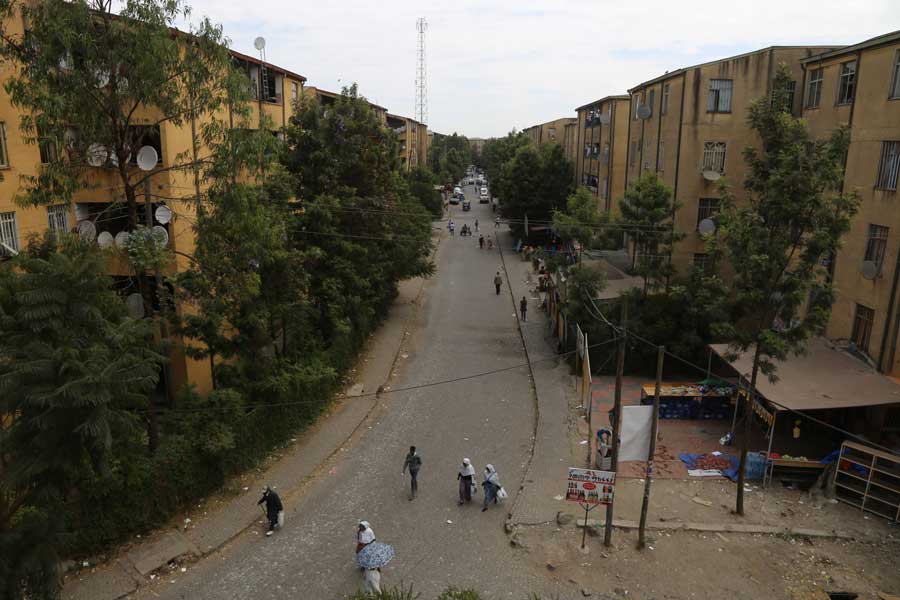
Commentaries | Oct 02,2021
Mar 27 , 2021
By HAWI DADHI
Several public projects under review by the federal planning commission failed to receive a positive nod due to an inability to meet the commission's criteria and priorities.
Close to 16pc of the 129 projects assessed by the Planning & Development Commission were dropped after the office of the federal auditors general revealed 44.3 billion Br in public projects were misappropriated in the three years beginning in fiscal year 2015/16.
The Commission is mandated to do preliminary and initial screening with the passing of a law in June last year governing public projects administration and management. The law obliges officials to ensure projects are socially and economically viable and achieve their objectives by optimising the utilisation of resources allocated to them.
A new department, the Development Projects Directorate, has been up and running under Bereket Fesehatsion. It is tasked to identify whether a project's rationale and scope have been accurately defined; whether the proposed projects could be carried out by the private sector; if it has a clear implementation mechanism; if regional states can implement it; whether it can be integrated with other projects; and whether it is in line with the administration's priorities.
Bereket's office has provided federal agencies project concept note preparations and pre-screening formats, which they use to formulate their submissions.
All federal agencies have been notified to send their concept notes for projects to be considered in the coming fiscal year. Federal agencies, including the ministries of Health, Innovation & Technology, and Water & Irrigation, have responded, submitting project proposals requiring finance or sovereign guarantees from the federal government.
About 54 public projects were accepted, and 30pc were sent back for revision, while the remaining were declined. The bulk of projects submitted were from the ministries of Health and Innovation & Technology.
"We've conducted one-on-one consultations with the agencies whose projects were unclear," said Bereket.
After the ministers are given the go-ahead to carry out feasibility studies, the Commission keeps up its engagement through appraising the studies.
"We'll have a rigorous appraisal," Bereket told Fortune.
During the appraisal of feasibility studies, the Commission wants to ensure the studies are conducted as detailed in the concept note as well as keep track of standards. To address gaps noticed in the transition to the new project design system, the Commission held a five-day training last week with 15 agencies in collaboration with the World Bank. The training is the first among a series of capacity enhancement programmes, according to Bereket.
Sintayehu Demissie, a lecturer at the Addis Abeba University School of Business & Economics, appreciates the capacity-building training, as he believes it is crucial in making the whole process successful. He added that public offices should be able to retain the trainees.
"A system that retains capable professionals has to be in place," he said.
Expert-specific projects not necessarily within the scope of public institutions should be outsourced or carried out in partnership with private institutions, according to Sintayehu.
However, the new system could be seen as disadvantageous since it creates bureaucracy and robs institutions of their autonomy in decision making.
"Resources allocated for public projects are limited; hence prioritisation and capital rationing come in handy," Sintayehu said.
PUBLISHED ON
Mar 27,2021 [ VOL
21 , NO
1091]

Commentaries | Oct 02,2021

Radar | Dec 05,2018

Radar | Jan 19,2019

Fortune News | Jun 20,2020

Agenda | Nov 09,2019

Dec 22 , 2024 . By TIZITA SHEWAFERAW
Charged with transforming colossal state-owned enterprises into modern and competitiv...

Aug 18 , 2024 . By AKSAH ITALO
Although predictable Yonas Zerihun's job in the ride-hailing service is not immune to...

Jul 28 , 2024 . By TIZITA SHEWAFERAW
Unhabitual, perhaps too many, Samuel Gebreyohannes, 38, used to occasionally enjoy a couple of beers at breakfast. However, he recently swit...

Jul 13 , 2024 . By AKSAH ITALO
Investors who rely on tractors, trucks, and field vehicles for commuting, transporting commodities, and f...

Jun 28 , 2025
Meseret Damtie, the assertive auditor general, has never been shy about naming names...

Jun 21 , 2025
A well-worn adage says, “Budget is not destiny, but it is direction.” Examining t...

Jun 14 , 2025
Yet again, the Horn of Africa is bracing for trouble. A region already frayed by wars...

Jun 7 , 2025
Few promises shine brighter in Addis Abeba than the pledge of a roof for every family...